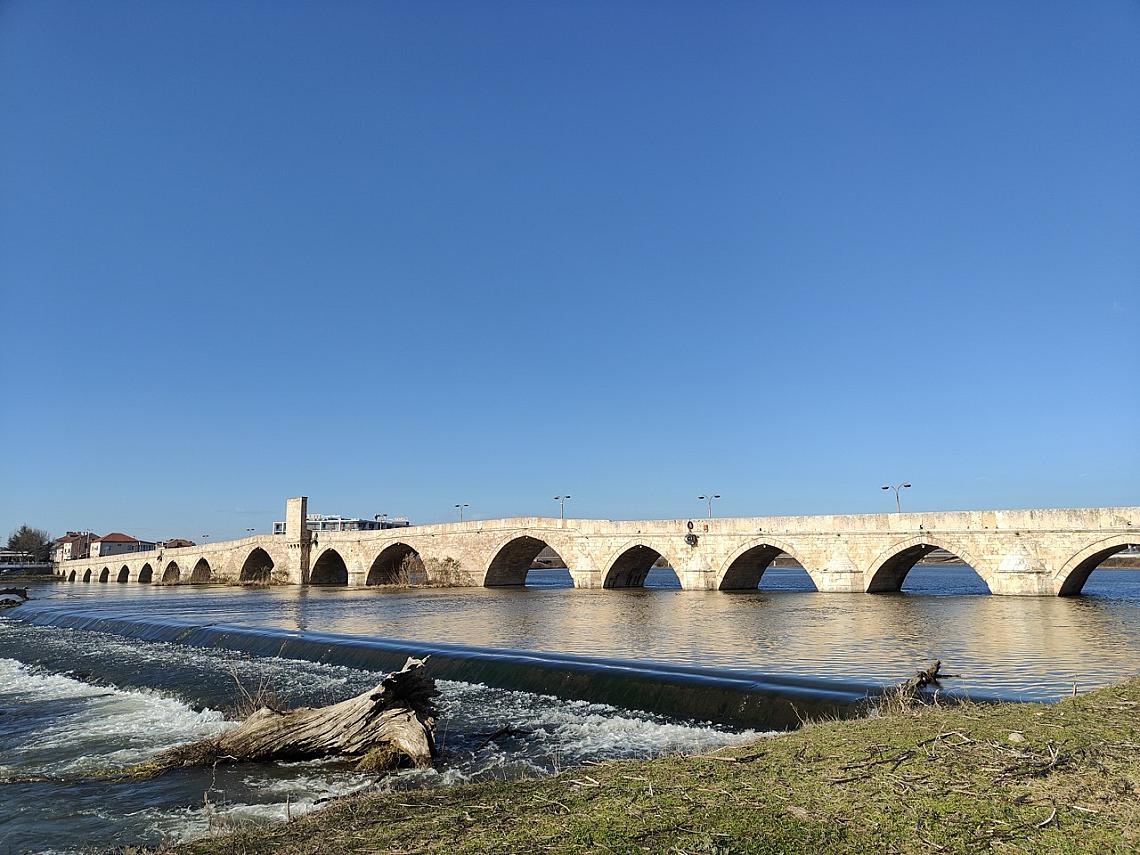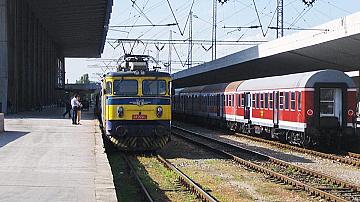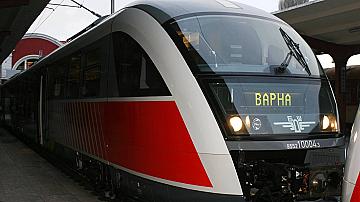Today, Svilengrad is best known as a border city, but its surroundings are rich in ancient sights and historical monuments from the Thracian, Roman, and Byzantine eras.
How to Get There
The railway line Plovdiv–Svilengrad was one of the first built in Bulgaria. Baron Hirsch completed the Istanbul–Edirne–Belovo line in 1873. Traveling by train from Plovdiv is an excellent option for a day trip to Svilengrad.
Due to ongoing renovations at Plovdiv Central Station, your journey to Svilengrad begins at Plovdiv Iztok Station. A convenient train departs at 10:15 a.m., arriving in Svilengrad at 12:30 p.m. This allows plenty of time to explore the city before returning by train at 5:30 p.m.
To reach the Old Bridge from Svilengrad Station, city buses are available, with schedules synchronized with train arrivals.
We wish you a pleasant journey!

The old bridge over the Maritsa River in Svilengrad
Sights in Svilengrad
The Old Bridge оver the Maritsa River
This iconic landmark, located in Svilengrad’s center, is an architectural marvel built entirely of stone between 1512 and 1529. It was financed by Sultan’s vizier Mustafa Pasha, and a marble slab inscribed in Ottoman script commemorates the bridge in its center. The 300-meter-long structure, featuring 20 beautiful stone arches, is now a pedestrian walkway and a cultural monument.
The area around the bridge is perfect for relaxation, with charming restaurants offering fresh river fish.
Svilengrad Malebi Dessert
During your visit, don’t miss the opportunity to try the famous Svilengrad malebi—a delightful dessert made from rice flour and milk, topped with rose-scented syrup. The recipe, originally from the Arab world, was introduced to Bulgaria over a century ago and is exclusively made in Svilengrad by a local confectionery shop.
A Fascinating Legend
The Old Bridge of Mustafa Pasha is steeped in legend. It is said that when Sultan Suleiman admired the beauty of the bridge, he offered Mustafa Pasha four hundred pouches of gold coins to purchase it. Mustafa Pasha, proud of his creation, refused to sell but feared the Sultan might take it by force. Torn with worry, he poisoned himself to avoid yielding the bridge.
Outraged, the Sultan cursed the bridge, declaring that whoever crossed it first would lose their most precious possession. This curse frightened the townspeople, and no one dared to set foot on it. Mustafa Pasha’s grieving father, determined to lift the curse, courageously crossed the bridge himself, thus freeing the town from its sinister fate.
The bridge, built as an act of goodwill, protected through sacrifice, and saved by love, stands as a symbol of resilience and eternity—a name reflected in its completion year, 1512, which coincidentally translates to "eternity" in Arabic (ebedie).
Plan your train trip with BDZ and discover the charm of Svilengrad and beyond!










